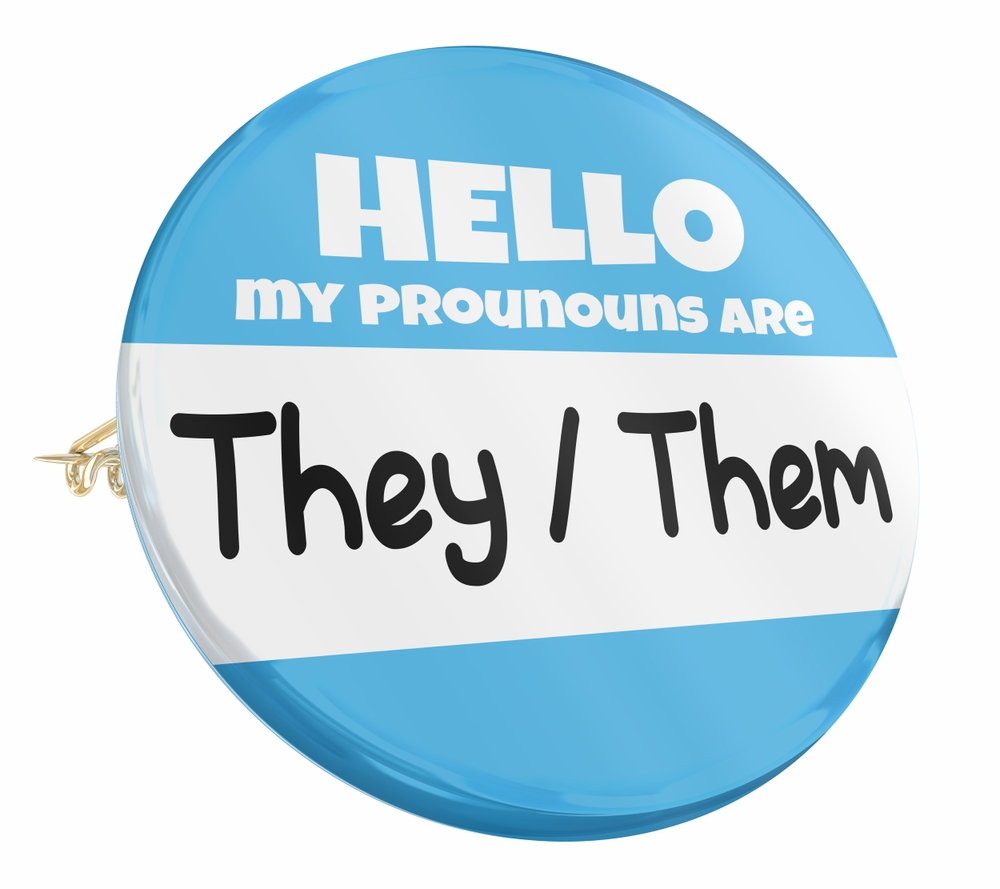Boomers have spent their whole lives using grammar one way, and no amount of explaining will make them embrace this change.

For most Boomers, language was a stable structure they could always rely on. Grammar rules weren’t just suggestions—they were foundational truths drilled into them from grade school on. These rules provided clarity, consistency, and comfort. So when the language started shifting, especially around pronouns like “they/them” being used for a singular person, it felt deeply unsettling. It wasn’t just a small tweak; it was a fundamental rewrite of something they thought was permanent.
And while younger generations might see this as progress or inclusion, Boomers often experience it as disorienting and unnecessary. The more it’s explained, the more frustrated many of them become. It’s not always stubbornness; sometimes it’s simply a generational disconnect that’s hard to bridge. Here’s a closer look at why so many Boomers struggle to wrap their heads around this change.
1. The grammar rule they learned in school is now “wrong.”

Boomers grew up in classrooms where teachers pounded strict grammar rules into their heads. Singular pronouns referred to one person, plural pronouns referred to multiple people, and that was that. “They” always indicated more than one. Anything else was marked as a mistake, often with bright red ink. Over decades, these rules became second nature, almost like muscle memory, shaping how they processed language and structured their thoughts.
Now, being told that “they” can refer to a single person feels like an assault on everything they learned, as mentioned by Kirby Conrod at Quick and Dirty Tips. For many, it’s not about being intolerant but about feeling like the ground rules have shifted under their feet without their consent. It’s disorienting to be told that what was once correct is suddenly outdated or offensive. Rewiring these lifelong habits is overwhelming and, for some, simply not worth the mental gymnastics.
2. It feels like forced participation in something they don’t believe in.

For a lot of Boomers, adopting “they/them” pronouns feels like being asked to endorse an entire worldview they didn’t sign up for. It’s not just a matter of changing grammar—it feels like buying into a cultural or political movement they might not fully understand or agree with. Many associate this shift with what they perceive as “woke culture,” which can already feel foreign or even threatening to them, according to Natasha Lee at Bolde.
When Boomers feel forced into using language that conflicts with their beliefs, it triggers resistance. They don’t like feeling coerced into adopting new norms that clash with their values. Instead of seeing it as a simple act of respect, they interpret it as being pressured into compliance. And the more they feel that pressure, the more they dig in their heels as a way of reclaiming their own sense of autonomy.
3. They think it makes communication way more confusing.

Boomers value clear, straightforward communication. For decades, “they” unmistakably referred to multiple people, and sentences built around that understanding were simple to follow. Now, when someone uses “they” to refer to one person, Boomers find themselves mentally pausing to decipher whether the speaker means one person or several. That extra mental step feels unnatural and interrupts the flow of conversation.
The confusion isn’t just theoretical—it happens in real conversations, often causing misunderstandings or awkward follow-up questions. To Boomers, language should make things easier to understand, not more complicated, as per Michael F Kay at Psychology Today. They worry that this new usage introduces ambiguity and forces them to constantly double-check context, which makes casual conversation feel like navigating a minefield of potential errors.
4. They see it as part of a bigger cultural shift they don’t relate to.

For Boomers, the rise of singular “they” is just one piece of a much larger cultural transformation that often feels alien. They were raised in an era with very defined gender roles, social expectations, and language norms. The questioning of those long-held standards feels like an unraveling of the world they knew and trusted. Every change adds to their sense of disconnection from the present culture.
This broader shift often leaves them feeling marginalized or irrelevant. The new rules about gender and identity don’t just challenge grammar—they challenge their entire worldview. And when people feel like outsiders in their own culture, they’re less likely to embrace changes that make them feel even more out of step with the world around them.
5. They’re annoyed that younger people get offended so easily.

Boomers came of age in a time when people were expected to tolerate minor social missteps without taking offense. If someone got your name or gender wrong, you corrected them and moved on. Now, the heightened sensitivity around pronouns feels excessive to many Boomers. They struggle to understand why small mistakes carry such heavy social consequences.
This heightened expectation of perfection feels exhausting and stressful. Many Boomers feel like they’re constantly one misstep away from being called offensive or disrespectful, even when no harm was intended. That kind of pressure creates resentment and fatigue. Rather than try to keep up with what feels like an ever-shifting rulebook, some choose to disengage entirely.
6. They think it’s just a trend that will fade away.

Having witnessed countless social trends come and go—hairstyles, fashion, slang, and technology—Boomers often view the singular “they” as just another fad that younger generations will eventually abandon. To them, it feels temporary, like bell-bottom jeans or pet rocks. They assume that in time, the enthusiasm for gender-neutral pronouns will cool, and language will settle back into its old patterns.
This belief gives them permission to ignore the change. If they believe it’s not permanent, they don’t feel any urgency to adapt. Instead, they sit back and wait, confident that the cultural pendulum will swing back eventually. But as this shift endures and becomes more embedded in younger generations, many Boomers remain frustrated that it’s not disappearing as they expected.
7. They don’t like feeling like they’re always saying the wrong thing.

No one enjoys being corrected, but for Boomers, being called out for using the wrong pronoun feels especially upsetting. They’re used to feeling confident in their language skills, and now they’re repeatedly told they’re getting it wrong. Even accidental mistakes are often met with harsh criticism, making them feel like they can’t win no matter how hard they try.
This constant fear of messing up discourages many from even trying. The stakes feel too high. Instead of learning and adapting, they may retreat entirely, choosing not to engage in conversations where pronouns might come up. The risk of being publicly shamed or labeled as disrespectful is too anxiety-inducing, leading many to disengage out of self-protection.
8. They think it erases the idea of biological sex.

Boomers were raised in a world where gender identity and biological sex were considered inseparable. The idea that someone can identify as a gender different from their biological sex feels like rejecting objective reality. To them, pronouns are tied to observable facts, not personal feelings or identities. Changing pronouns based on identity challenges deeply rooted beliefs about how the world works.
For many Boomers, this is not just a language issue but a philosophical one. Accepting “they/them” pronouns means accepting a worldview they find confusing or even threatening. They worry that blurring these lines undermines what they’ve always understood as basic facts of life. That’s a huge conceptual leap, and for some, it’s simply a bridge too far.
9. They feel like they’re being judged for not adapting fast enough.

Boomers are accustomed to being respected for their life experience, but in this area, they often feel like they’re treated as ignorant or bigoted simply for struggling to adapt. Instead of receiving understanding for their learning curve, they feel shamed and judged, which only fuels their defensiveness and resistance.
Being labeled as intolerant because of a language slip-up feels unfair to many Boomers. They want some grace as they navigate unfamiliar territory, but often feel like that grace isn’t extended. Feeling constantly judged for not keeping up adds emotional weight to an already difficult adjustment, making many even more reluctant to engage with the change at all.
10. They don’t see why they should change when it’s not “their problem.”

Ultimately, many Boomers feel like this isn’t their issue to solve. If it doesn’t directly impact their daily lives, they don’t see why they should put in the effort to change habits that have worked for decades. Learning new pronoun usage feels like a chore they didn’t ask for, all to accommodate what they see as a small minority.
From their perspective, the cost of adapting feels higher than the benefit. If they can get by without changing, most are content to do so. They view the expectation to change as optional, and when something feels optional and difficult, it’s much easier to simply opt out altogether.
